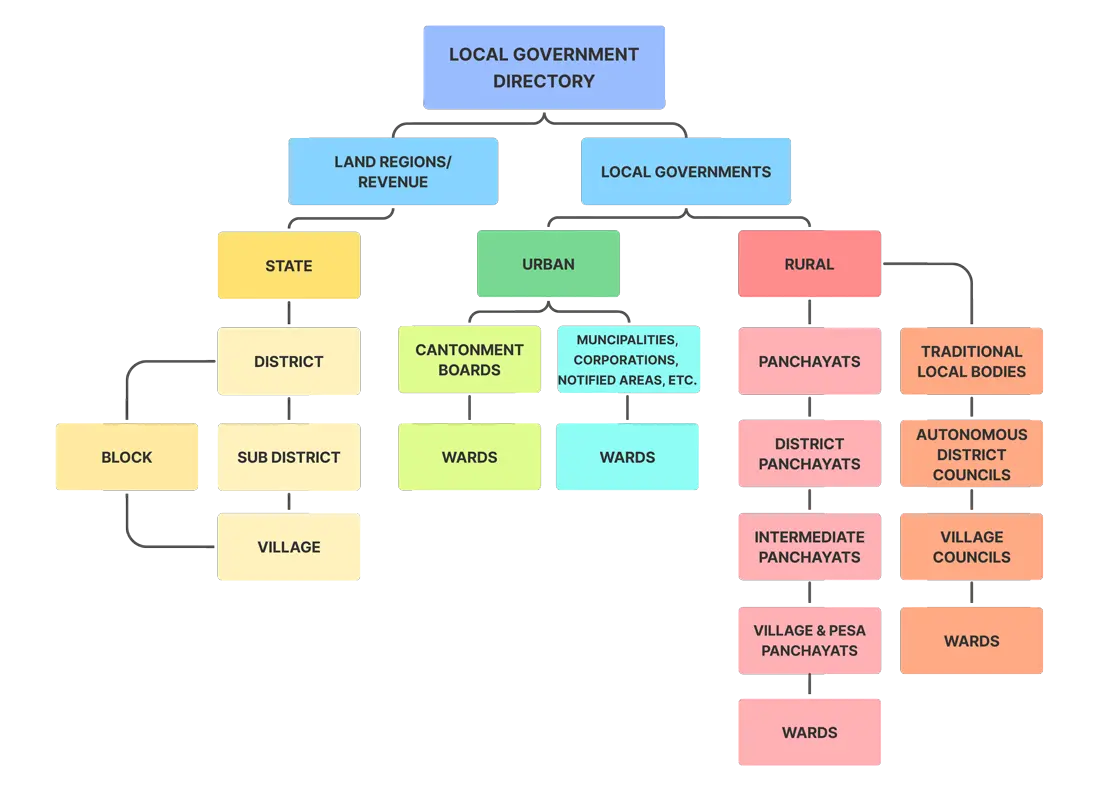![]() November 24, 2023
November 24, 2023
![]() 2530
2530
![]() 0
0
Decentralization in Indian Governance: India follows a three-tiered system of governance, with authority distributed among the central government, state governments, and local self-government bodies. Decentralization aims to promote grassroots democracy, enhance community participation, and address local issues effectively.
Empowering Local Governance: The Need for Decentralization in India

<div class="new-fform">
</div>
Latest Comments